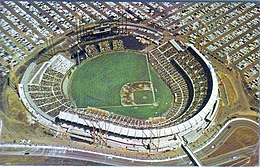Among the experimental songs on Revolver was "Tomorrow Never Knows", the lyrics for which Lennon drew from Timothy Leary's The Psychedelic Experience: A Manual Based on the Tibetan Book of the Dead. Its creation involved eight tape decks distributed about the EMI building, each staffed by an engineer or band member, who randomly varied the movement of a tape loop while Martin created a composite recording by sampling the incoming data. McCartney's "Eleanor Rigby" made prominent use of a string octet; Gould describes it as "a true hybrid, conforming to no recognisable style or genre of song". Harrison's emergence as a songwriter was reflected in three of his compositions appearing on the record. Among these, "Taxman", which opened the album, marked the first example of the Beatles making a political statement through their music. In 2003, Rolling Stone ranked Revolver as the third greatest album of all time.
As preparations were made for a tour of the US, the Beatles knew that their music would hardly be heard. Having originally used Vox AC30 amplifiers, they later acquired more powerful 100-watt amplifiers, specially designed for them by Vox, as they moved into larger venues in 1964; however, these were still inadequate. Struggling to compete with the volume of sound generated by screaming fans, the band had grown increasingly bored with the routine of performing live. Recognising that their shows were no longer about the music, they decided to make the August tour their last.

Niciun comentariu:
Trimiteți un comentariu